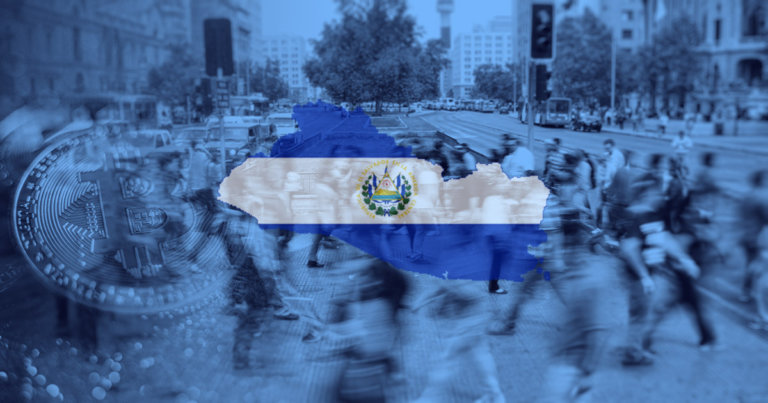 More than 75% of El Salvador is skeptical of Bitcoin, survey finds
More than 75% of El Salvador is skeptical of Bitcoin, survey finds More than 75% of El Salvador is skeptical of Bitcoin, survey finds
The majority of El Salvadorans are doubtful of the new Bitcoin law, showed a post-legislation survey.

Cover art/illustration via CryptoSlate. Image includes combined content which may include AI-generated content.
Results of a recent survey, conducted by Disruptiva, a pollster affiliated with Francisco Gavidia University, suggest that more than half of El Salvador’s citizens view the new Bitcoin (BTC) law as “not at all correct,” according to Reuters.
Disruptiva included 1,233 people in their survey, which was conducted between July 1 and July 4, roughly three weeks after president Nayib Bukele’s supporters in Congress approved the law’s legislation.
Skepticism, disapproval, and lack of information
The poll that features a margin of error of 2.8% showed that roughly 54% of people viewed the Bitcoin adoption as “not at all correct.”
Another 24% described it as “only a little correct,” while less than 20% approved the new legislation.
The survey results also revealed that 46% of respondents knew “nothing” about Bitcoin, while almost 65% stated that they would not be open to being paid in the cryptocurrency.
Despite the thrills
The new Bitcoin law encountered disapproval from the World Bank and the International Monetary Fund, while the survey’s results clearly suggest public resistance as well, despite the perks announced by the president following its legislation.
Bukele has announced that 4.5 million adult citizens will receive an airdrop of $30 Bitcoin each from the government. He also confirmed that there will be no capital gains tax for Bitcoin since it will be a legal currency.
The country has used the US dollar as its national currency for years, introduced in an attempt to reactivate the economy and attract foreign investment, it had a negative effect on the poor by increasing inequality.
Bitcoin’s introduction essentially promises the same and considering the fact that almost half of El Salvadorans know nothing about cryptocurrency, their skepticism is understandable from the social psychology point of view.
Nonetheless, the law is set to take effect on September 7 as Bukele keeps developing the infrastructure, starting with a somewhat “farm to table” approach.














































































































